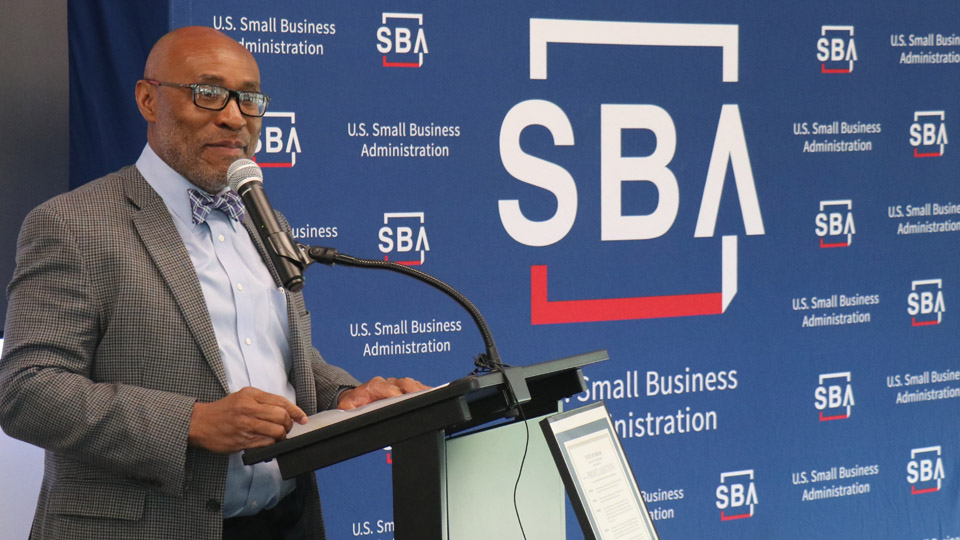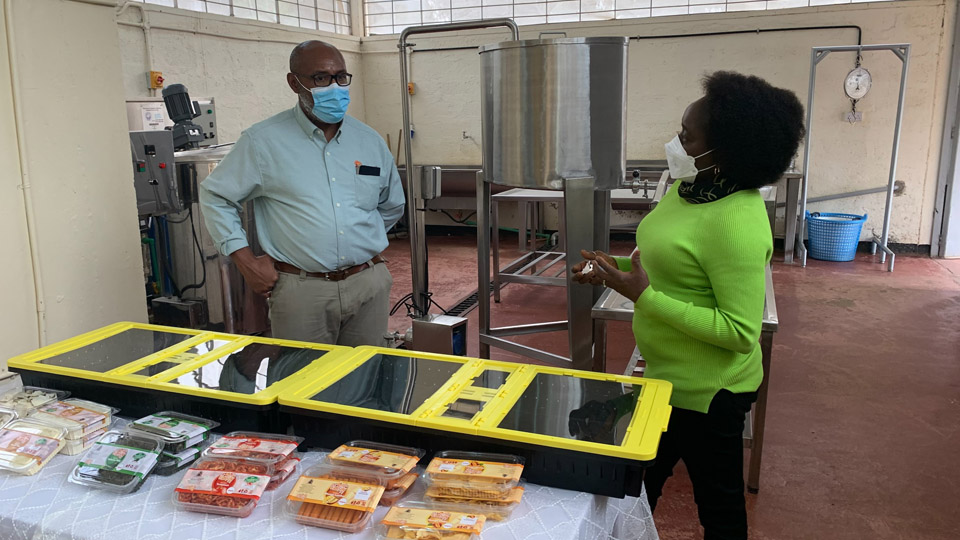Entrepreneur Honored for Fighting Food Insecurity
Subscriber Benefit
As a subscriber you can listen to articles at work, in the car, or while you work out. Subscribe Now
A Purdue University engineering professor who developed a solar-powered tool to help subsistence farmers preserve food in Africa has been named Indiana and Great Lakes Region Exporter of the Year by the U.S. Small Business Administration. Dr. Klein Ileleji, co-founder and chief executive officer of JUA Technologies International, devised a portable dehydrating system that dries fresh foods. The Dehytray helps small farmers reduce food waste in countries where refrigeration and storage are limited, but solar power is plentiful.
In an interview with Inside INdiana Business, Ileleji explained exports are a great opportunity for small business owners.
“Sometimes when we think of small businesses, we think of a small business just doing things here, just doing business within the states. But quite a few of us actually export our products overseas,” Ileleji said.
The SBA says 96% of the world’s buyers live outside the U.S., so exporting is great opportunity for small businesses to broaden their revenue streams. The Indiana SBA offers resources and finance opportunities to help Hoosier entrepreneurs who want to take advantage of the global opportunities available.
“Entrepreneurs and small businesses are fundamental to the future growth and sustainability of communities across the state,” said David Watkins, state director of the Indiana Small Business Development Center and vice president of small business for the Indiana Economic Development Corp.
JTI exports most of its units to non-governmental organizations that support small farmers in sub-Saharan countries. Ileleji says small and medium-sized farms and food processors often throw away excess fresh crops because of the lack of storage.
“We have all the logistics companies to move things around in this country, [but] they don’t have the refrigeration systems we have. They don’t have the storage systems we have. So, if farmers can’t go to the market with their produce, all that goes rotten,” Ileleji explained.

Ileleji, who is a professor with Purdue’s Department Agricultural and Biological Engineering, launched the company in 2018 with help from the Purdue Research Foundation.
The trained engineer admits he was a business novice when launching the company. He’s had to learn along the way. But he says he received plenty of help from the Indiana Small Business Development Center and the Indiana District Export Council.
“Our mentors they put us through the export Indiana accelerator program and that’s where we actually got to learn the processes of exporting goods manufactured in the state,” said Ileleji, who adds the USDA-National Institute of Food and Agriculture, and U.S. Agency for International Development were critical in opening doors overseas and providing grants.
“There’s a large export market for American goods, which are quite valued as “good” goods, goods that are well manufactured, well designed, quite competitive in the marketplace,” said Ileleji.
Ileleji is proud of the fact that his device is manufactured in Indiana. He says production of the equipment has not been difficult, but getting it shipped to remote countries where farmers could benefit from the technology is a challenge.
“We can only fill probably less than 10% of inquiries. We get a lot of people saying they want to buy, but we send out a lot of replies saying we cannot ship to that region yet,” said Ileleji.
Ileleji says the system is being shipped to ten countries on four continents, but often in small orders. He says the company is still working towards economy of scale where it can lower the price per unit. But he says the real challenge is shipping costs.
“The cost to ship is five times that of the device,” said Ileleji.
While a majority of the units are shipped overseas, Ileleji says he’s discovered a growing domestic market.
“We have small growers in the U.S. at farmers markets. It’s a growing industry where people want to know where their farm produce comes from.”
As Ileleji responds to a growing client base in the U.S., he says the foreign market is key as he continues to help in the global battle against food insecurity.
